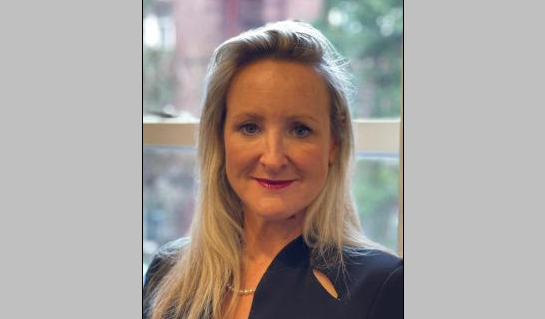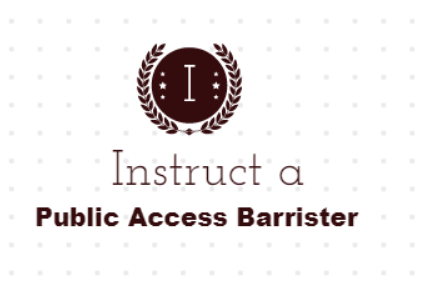Sophie Murray, St Ives Chambers talking to Rebecca Wade and Millie Webb
Having joined St Ives Chambers a year ago I have been impressed with the number of women we have both joining and progressing within the criminal practise group. Looking at the Midlands as a whole, this is not something that is widely reflected across the region sadly we have the lowest number of female Silks in the country.
When I came into the profession all I wanted to do was take Silk, but as the years have gone on and the family has taken up more time, I have found myself questioning this aim. How do I prepare myself, what steps do I need to take to get there, would I be assisted by taking professional advice. It is not obvious how to do all these things so to this end I asked a Rebecca Wade K.C., who recently took Silk a number of questions about how she achieved her success and what she would recommend focussing in order to get there. I then asked Millie Webb a second six pupil in our chambers for her top tips in getting through pupillage, to inspire anyone applying for pupillage what to expect and it would seem to expect the unexpected.
Rebecca Wade KC: –
What preparation did you undertake before applying?
Applying for Silk is at least a 3 year process. You need to have 12 cases of substance over the previous 3 years to demonstrate that you meet the competencies. I was appointed a Recorder in 2019 and it was at that point that I began to think about the future. It seemed that the natural option would be to consider applying for K.C., because from that point that was my likely career path. From the age of 15 years old undertaking work experience in the criminal justice system, I had always admired the skills those in Silk displayed.
From 2019 my practice experienced an upturn in serious work. I had always prosecuted and defended serious sexual offences, but now I was beginning to be routinely instructed in homicide cases. When I was being led I increasingly began to feel that I was capable of running the cases myself. My role in those cases changed, and I was more in control of how the case was run; undertaking more significant advocacy. I was encouraged by my leaders to apply and from that point my mindset changed.
Although I started the process of preparation in 2019, I had mapped out my progression to be ready to apply in 2022. The costs and time implications of applying cannot be ignored, so I had to be in the best position to be successful. I have been lucky to have received such a wealth of support and advice. By the time of the application in March 2022 I was extremely motivated to apply, not just for me but also in the hope that if I was successful, it would put our criminal team on the map, and encourage our juniors that becoming a Silk is within their grasp, regardless of background. There is a real lack of women at the top of the profession, especially in Silk, I hope that this can be addressed in the future and I can inspire others to follow in my footsteps.
How did you go about the application process?
I started planning the form in January because it’s about 100 pages! Spending an hour or so daily going through the competencies. The form is hard as each section you are limited to only a certain amount of characters – so every space and full stop counts.
I did receive professional assistance, and I am not afraid to admit it. Looking back there were a couple of points that I was assisted on which May have made all the difference, especially with preparation for the interview.
The hardest part of the process is waiting. Once you submit the application, you don’t find out if you have been successful in getting an interview until September. However, the interview takes place soon thereafter, so you have to prepare for it from about July. At times it felt soul destroying preparing for an interview you might not even get! Also strangely, the bar action helped me as I was able to take time off to prepare for the interview.
Have you any top tips?
I think the issue can sometimes be the level of secrecy, no one wants to let people know they are applying – perhaps tor fear of failure. My application was the worst kept secret – I told anyone who would listen! Which helped to get encouragement, support and tips from those who have been through it.
The biggest tip is preparation is the key – like I said it’s a 3 year plan. There is no use putting 12 murder cases on the form if all you did in them was read the agreed facts and interview. The panel may pick the judge on any of those cases and if they don’t speak in glowing terms about all competencies then you are unlikely to get an interview. Judges tend to be candid about whether they can support your application so it is word sounding them out in advance to see if they consider you to be good for Silk. The Judge who I picked to be my nominated judicial assessor has seen my advocacy loads of times, so was able to give plenty of evidence to support my ability in the various competencies.
What are you most looking forward to in your first year?
If I am being honest I am approaching the next year with trepidation. Despite feeling motivated I did not expect to achieve Silk on my first time of applying after being on my feet now for 18 years. I expected to have to make a further application. So, I think imposter syndrome is setting in slightly. Having gone from having a full diary where I was double booked, my diary now has gaps. I know that I need to change my mindset which will take time. Once I have done that hopefully I will have a better work-life balance. So ask me again in 12 months time!!!
Millie Webb:-
What was the most challenging aspect of your first 6?
The most challenging aspect of my first 6 was the jump between different areas of law. Just when you think you are getting used to one area of law, you rotate into the next and you feel like a total beginner again. Shadowing on criminal work and then moving onto family work can feel like you’re suddenly in a completely different job – each area is so different and requires different skillsets and knowledge. I think you have to embrace the differences and accept that with every new area you are going to feel like you’re in completely new territory.
What is the most surprising aspect of your second 6?
The most surprising aspect of my second 6 is how little forward planning you can do. Every week looks completely different and brings its own challenges. I sometimes have no idea where I am being sent, what my instructions are, or how long I will have to prepare my case. This has been something that I have had to get used to very quickly. You end up finding time where you never knew you could find time before! Having strong organisational skills is key but I’ve also recognised just how important it is to be flexible in how you work.
What advice would you give someone about to start pupillage?
Prepare yourself to feel totally unprepared and be okay with it. No matter how much pre-reading you think you have done – you are never going to feel fully prepared when you start pupillage. Don’t put unnecessary pressure on yourself to start re-reading every note you made at Bar School because it will soon become apparent that most things you have to learn as you go. Having said that, I would recommend getting your life admin in order before starting pupillage and develop good eating and sleeping habits. If you can get those parts sorted before starting pupillage you will put yourself in a better place to keep up good habits once pupillage has started.
What would be your top tip(s) for a successful pupillage interview?
Be yourself and don’t forget that the people interviewing you would be your future colleagues. It is normal to work yourself up about an interview but don’t let the pressure make you act like someone you are not. Aside from your ability and qualifications, the panel members will want to see your personal qualities – it helps them to see if they could see themselves working alongside you for many years to come.
My next top tip is to listen to the question and deliver focussed answers to those questions. Do take a moment before speaking if you need to think through your answer. I think a lot of us are scared of silence but we shouldn’t be. When a pause is used to properly think through what you want to say it can help you to deliver an answer you are proud of and actually shows that you are confident enough to comfortable in the silence.
Is there anything you would do differently looking back at your first six?
During my first six I don’t think I realised just how rare an opportunity it is to shadow other professionals and learn through osmosis. Now I am on my feet, I can properly appreciate how important that time was and how much you learn. If I could do it again, I would be regularly reminding myself to properly think about the practical aspects of what I was shadowing on – not just the advocacy or the legal content. Different courts have different skills set requirements and being alive to that is important.
What has been your reaction to getting on your feet?
Excitement and a bit of disbelief that it is actually happening. It’s a very liberating feeling being able to get on your feet and overall, I just feel very lucky to be doing the job I’ve worked towards! Nothing has beaten the feeling of walking into a Crown Court in full robes and wig and finally doing what I’ve wanted to do for a long time!
It is certainly inspiring to see the success of other women at the Bar and to understand how they go about it. As with anything hard work dedication and preparation appear to be key, I look forward to watching the progression of both Millie and Rebecca over the coming years.
Sophie Murray, St Ives Chambers was to talking to Rebecca Wade KC and Millie Webb




